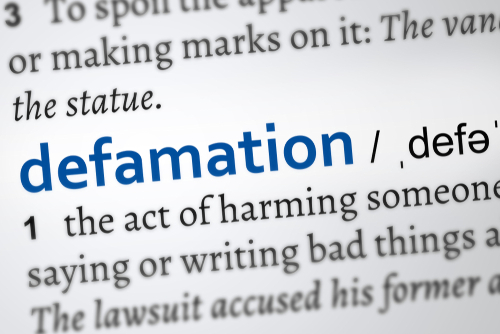ACLU lawyers reviewed op-ed that led to Johnny Depp's defamation claim, its GC testifies

Image from Shutterstock.
Several lawyers with the American Civil Liberties Union reviewed the Washington Post op-ed by actress Amber Heard that led to actor Johnny Depp’s defamation lawsuit against her, according to testimony by the organization’s general counsel last week.
In a video deposition played at the trial Thursday, ACLU general counsel Terence Dougherty said he thought that four ACLU lawyers had reviewed the op-ed, which didn’t mention Depp by name, Law & Crime reports.
The Associated Press, NPR and Insider also have coverage of the testimony.
Depp’s lawyers have argued that the article defamed him when Heard identified herself as a victim of domestic abuse after she publicly accused Depp of domestic abuse in 2016.
The December 2018 op-ed was titled, “Amber Heard: I spoke up against sexual violence—and faced our culture’s wrath. That has to change.” The article identified Heard as an actress and an “ambassador on women’s rights at the American Civil Liberties Union.”
These two sentences in the article could be at issue:
• “Two years ago, I became a public figure representing domestic abuse, and I felt the full force of our culture’s wrath for women who speak out.”
• “I had the rare vantage point of seeing, in real time, how institutions protect men accused of abuse.”
Dougherty said the ACLU lawyers wanted Heard’s lawyers to also review the article to make sure that it complied with a nondisclosure agreement that was part of Heard’s and Depp’s divorce.
The version approved by Heard’s lawyers “specifically neutered much of the copy regarding her marriage,” according to an email from an ACLU employee. The email said, however, Heard wanted to reincorporate one deleted passage.
Jurors were not shown different versions of the article, so it is unknown what was taken out or reinstated.
Heard’s lawyers have argued that the article was not defamatory, and the First Amendment protects her right to speak out on matters of public importance.
Write a letter to the editor, share a story tip or update, or report an error.


